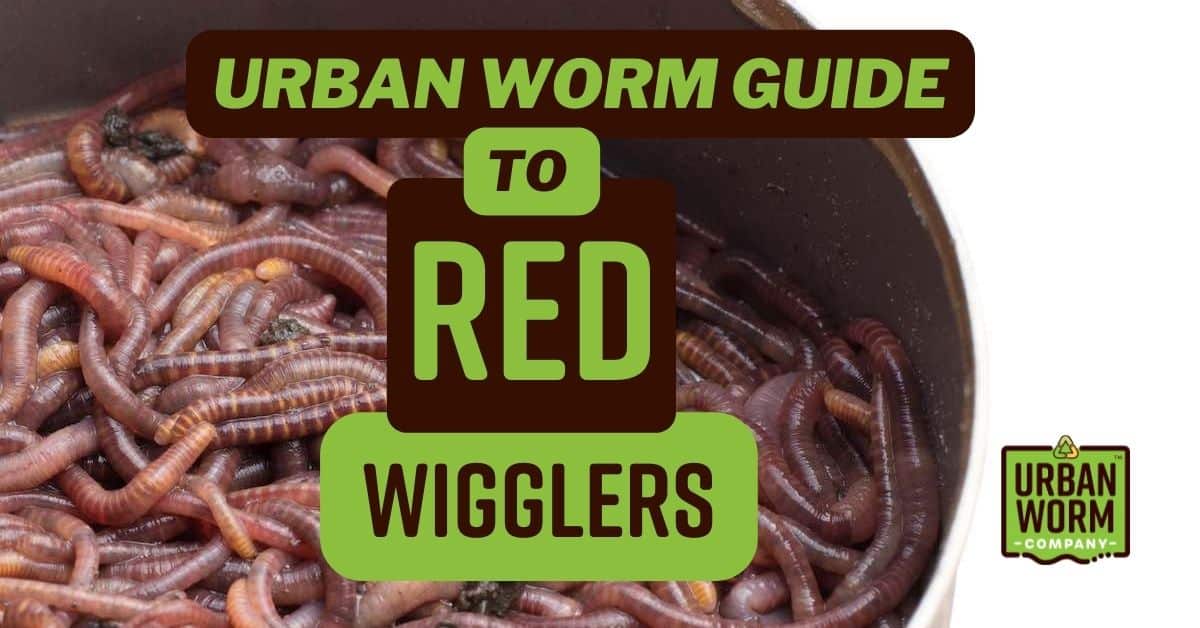Red Wiggler Worms - Natural Option for Environment-friendly Composting
Red Wiggler Worms - Natural Option for Environment-friendly Composting
Blog Article
Red Wiggler Worms Demystified: Opening the Keys of Vermiculture for Greener Living and Nutrient-Rich Dirt
In the realm of lasting techniques for improving dirt high quality and promoting eco-conscious living, red wiggler worms play a critical yet usually neglected duty. Red Wiggler Worms. Understanding the details of caring for these worms, maximizing their atmosphere, and harnessing their castings can lead to a greener lifestyle and healthier dirt for plants to flourish.
The Role of Red Wiggler Worms
Red Wiggler worms play a vital role in composting systems by successfully damaging down raw material into nutrient-rich castings. These starved eaters eat a range of organic products, such as cooking area scraps, backyard waste, and paper items. As they feed, the worms' gastrointestinal procedures damage down the raw material into a penalty, dark, and nutrient-dense material understood as worm spreadings or vermicompost.
The castings generated by Red Wiggler worms are highly beneficial for dirt health and plant development. They are rich in essential nutrients like potassium, phosphorus, and nitrogen, which are crucial for sustaining healthy and balanced plant development. Furthermore, worm castings contain advantageous microorganisms and enzymes that help enhance dirt structure, rise water retention, and boost nutrient uptake by plants.
Benefits of Vermicomposting

It boosts dirt structure, enhances dirt oygenation, and boosts dirt moisture retention. Vermicompost likewise improves the soil with essential nutrients like nitrogen, potassium, and phosphorus, advertising plant growth and overall dirt fertility.
Furthermore, vermicomposting supports lasting horticulture techniques by providing a chemical-free and natural choice to artificial fertilizers. Red Wiggler Worms. This ecologically pleasant method not just improves the soil yet likewise helps in reducing dependence on damaging chemicals, promoting a greener and a lot more sustainable way of horticulture
Establishing Up a Worm Bin
When establishing a worm container for vermicomposting, appropriate setup is important to guarantee the success of the composting process. The very first action in establishing up a worm container is choosing a suitable container.
After adding the bedding, introduce the red wiggler worms to the container. The worms should then be provided with food scraps such as fruit and veggie peels, coffee grounds, and eggshells.
Routinely check the dampness levels and temperature look at these guys level in the worm container to make sure optimum problems for the worms. With correct arrangement and maintenance, the worm bin will efficiently convert natural waste right into nutrient-rich garden compost for your plants and yard.
Collecting Worm Castings
To effectively accumulate nutrient-rich worm spreadings from your vermicomposting system, an organized harvesting technique is important. When it comes time to gather the worm spreadings, there are a few vital steps to comply with to ensure an effective process.

Troubleshooting Common Issues
Identifying and resolving common challenges that may develop throughout the vermicomposting procedure is critical for preserving a productive and healthy worm container. Adding excess food scraps can lead to a buildup of wetness and level of acidity in the worm container, potentially damaging the worms. One more concern is undesirable smells rising from the worm bin.
Furthermore, if the worm population is declining or the worms show up unhealthy, it might be as a result of ecological stress factors such as extreme temperatures or pH degrees. Checking these elements and making needed adjustments is vital for the wellness of the worms. By troubleshooting these typical issues immediately, vermicomposters can guarantee a successful and smooth vermicomposting procedure while maintaining a thriving worm populace.

Final Thought
Finally, red wiggler worms play a crucial function in vermiculture by damaging down raw material into nutrient-rich soil. The benefits of vermiculture include greener living and boosted dirt quality. Setting up a worm container is vital for successful vermiculture, and collecting worm spreadings offers beneficial compost for gardening. Red Wiggler Worms By comprehending and fixing typical problems, individuals can unlock the secrets of vermiculture for lasting living and healthier soil.
As they feed, the worms' digestion processes break down the organic issue right into a fine, dark, and nutrient-dense product recognized as worm spreadings or vermicompost.
The spreadings generated by Red Wiggler worms are highly helpful for soil health and plant development. Adding excess food scraps can lead to an accumulation of moisture and level of acidity in the worm container, potentially damaging the worms.Furthermore, if the worm population is declining or the worms show up harmful, it can be due to environmental stressors such as severe temperature levels or pH degrees. Setting up a worm container is vital for effective vermiculture, and harvesting worm spreadings offers useful compost for horticulture.
Report this page